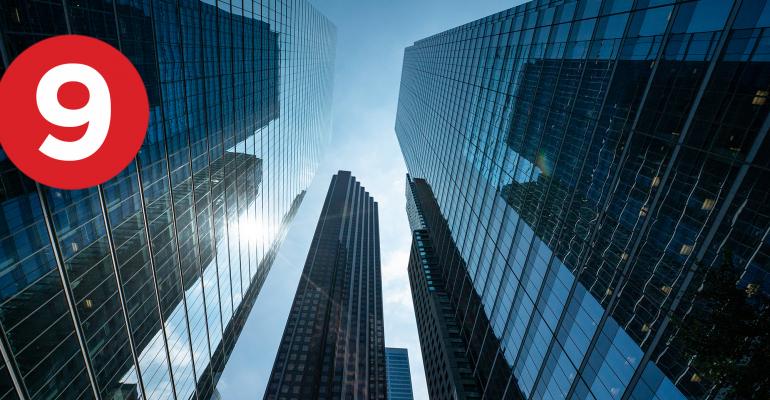- WeWork lost $2 billion in a quarter and 200,0000 members in a pandemic-hit year, it said ahead of its stock market debut “WeWork's quarterly revenues fell almost 50% compared to the first quarter of 2020, from $1.1 billion to $598 million, according to its results for the quarter ending March 31. WeWork said restructuring costs were $494 million, an increase from $56 million in the first quarter of 2020. This was driven by Japanese tech giant SoftBank's stock purchases, and a settlement with former CEO Adam Neumann, who stepped down in 2019.” (Insider)
- Will Covid-19’s Corporate Winners Now Lose, and Vice Versa? “The big question is to what degree are these shifts permanent. There is a lot of money riding on the answer. Airlines’ post-pandemic business won’t be as good, for example, if companies decide that most meetings with far-flung vendors should keep being held via teleconference.” (The Wall Street Journal)
- PGIM Real Estate’s Eric Adler on the post-Covid office and why he’s an ‘odd’ American “Eric Adler is surprisingly upbeat considering what global real estate investors have had to endure since the onset of the coronavirus pandemic last year.Covid-19 has left the global property investment sector severely bruised, with question marks over what the future holds for large city shopping centres or big office blocks that have been largely empty since the pandemic took hold.” (Financial News)
- Benderson Development expanding through net-lease investments “Benderson Development Co. is best known along the Gulf Coast for ground-up developments and distressed property upgrades, but since late 2019 the University Park company also has grown its nationwide portfolio through a series of transactions exceeding $1.5 billion. Most recently, the company announced earlier this month that it had acquired 28 Fred Meyer superstores in Oregon, Washington, Idaho and Alaska. The estimated $500 million deal also will add 4.5 million square feet to Benderson’s portfolio.” (Business Observer)
- To stay afloat, CT malls are looking to fill large, empty retail spaces with apartments, condominiums and offices “No fewer than six of Connecticut’s shopping malls are in various phases of exploring mixed-use options. Texas-based Centennial, which owns the Connecticut Post Mall, proposed building luxury apartments on the periphery of the retail center last year, but that plan was rejected by Milford officials.” (New Haven Register)
- Lack Of U.S. Climate Finance Regulation Presents Unique Opportunity For CRE Investors “The CRE and PE industries, to be sure, have changed, too. Since the rebound from the financial crisis of the late 2000s especially, the premium that CRE developers and investors assign to ‘green’ or sustainable building construction and, among building owners, operators and tenants, climate-aligned operations, has grown increasingly well-established.” (Forbes Real Estate Council)
- The Empire State Building’s Ownership History “From its opening day during the Great Depression to leasing troubles and a near takeover by former President Donald Trump, the skyscraper’s business history is just as exciting as its cinematic turns. TRD’s latest video chronicles the owners of the Empire State Building, from the group of businessmen who developed the property to the family who took it to the stock market it 2013.” (The Real Deal)
- International students are in panic mode. Can they get back to U.S. in time for fall term? “International students are at a critical moment in their college education, panicked that huge backlogs for visas requests, shuttered consulates and bureaucratic rules that limit access to the U.S. may derail their long-awaited return to campus. The stakes are particularly high in California, the top destination for international students where USC and the 10-campus University of California system alone collectively educate more than 54,000 of the million-plus international students enrolled at U.S. colleges and universities.” (Los Angeles Times)
- It’s ‘Showtime’ Again on the New York Subway “I’ve been riding the subway for the past six months, documenting how New Yorkers’ relationship with the system has changed. I’ve observed the shift in mood, from anxious to hopeful, as ridership increases despite concerns over safety.” (The New York Times)
0 comments
Hide comments





